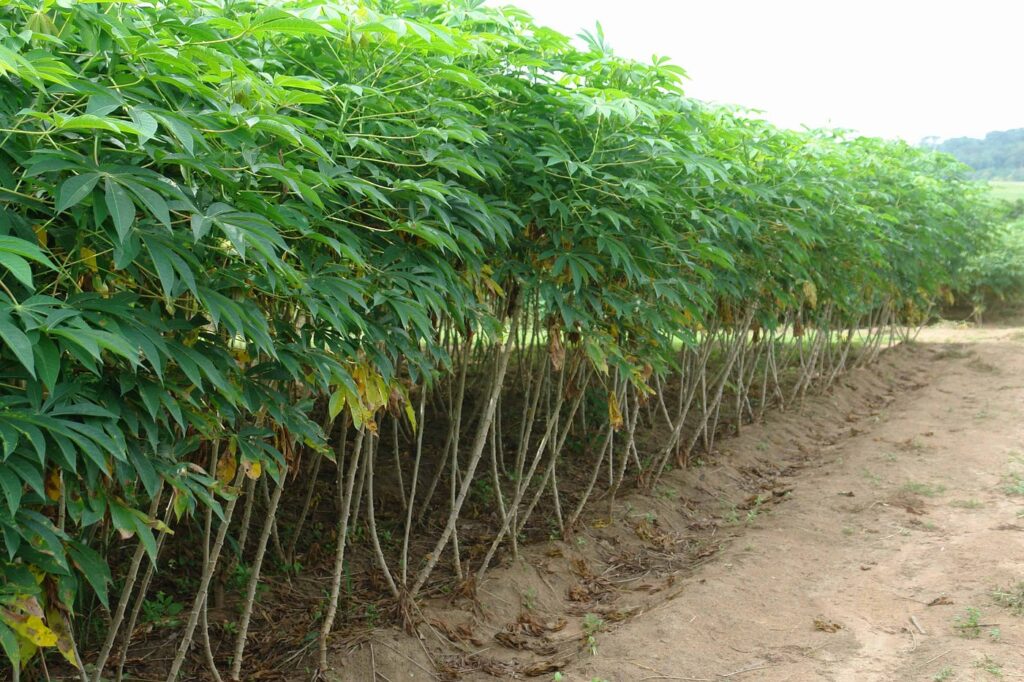Kenya is set to host the National Cassava Conference and Expo 2023 (NCCE) aimed at enhancing cassava production, productivity and value addition.
The trade fair themed ‘Spearheading Innovation and Technology for Cassava Sector’ will aid in creating positive public awareness of cassava’s importance in food and nutrition security, and socio and economic development across the country.
The conference led by the Ministry of Agriculture and Livestock Development (MoALD), and Self Help Africa in collaboration with European Union and other key development organizations, will be held on the 24th – 26th of October, 2023 at the Safari Park Hotel, Nairobi.

Self Help Africa Country Director Jo Ryan says enhanced cassava productivity in Kenya will save billions of Kenya shillings which are spent annually to import staple food produce and products for consumption and industrial use that could be retained in the country for social and economic development projects.
“There is a need for consistent promotion across the country through cassava Forums, Trade Fairs and exhibitions events, considering its resilience to moisture stress, higher productivity per hectare over cereal crop farming and importance in food & nutrition security,” said Ryan
The conference will provide a learning platform for local, regional and international cassava value chain players, where they will showcase and demonstrate their latest technologies, products, service as well as examine recent market trends and trade opportunities.
“It will also provide a platform that will facilitate the establishment of linkages that increase investment in the cassava value chain through a combination of government partnerships and private sector engagement, link and accelerate the development of affordable trading standards, procedures, protocols, and accreditations and identify areas of initial support to cassava actors as well as promote national branding of cassava and cassava products and increase awareness of consumption,” he explained.

Cassava is the second most important root crop after Irish potato grown throughout Kenya. It is a drought-tolerant crop providing a basic diet for most rural households to address food insecurity and mitigate poverty.
Production of cassava in Kenya is mostly concentrated in a few agricultural ecological zones that include Western Kenya, Coast and Eastern zones of the country. In these regions, cassava accounts for a greater percentage of the total cassava production in the country.
According to the Ministry of Agriculture, about 60 percent of cassava in Kenya is produced in the western region, 10 percent in the eastern region, and 30 percent on the Coast. Kenya currently produces 1 million tonnes of cassava, most of which is consumed locally, but the country has the potential to produce more than 3 million tonnes annually.
“Food and nutrition security and adequate employment remain a significant challenge in Kenya despite its enormous natural and human resources. With climate change, desert locusts, bird and armyworms invasion, migratory pests, emerging new crop diseases, the outbreak of Covid-19 pandemic and unpredictable conflict outbreaks like the recent Russian invasion of Ukraine wreaking havoc on cereal food crop production and the world’s food supply network, most Kenyan families are now finding it increasingly difficult to put food on their table,” said Hon. Mithika Linturi, CS Ministry of Agriculture, adding that “The challenges are compounded by the impact of climate change such as the emergence of new pests and diseases such as fall armyworms and Maize Lethal Necrotic Disease hence the demand for a reliable and sustainable solution.”
Cassava plays a very important role in the economies of many countries and is a good carbohydrate source. Cassava is a good source of dietary fibre as well as vitamin C, thiamin, folic acid, manganese, and potassium. It is the fourth most important food crop
in the world after maize, wheat and rice.
Kenya in 2019 developed the National Roots and Tuber Strategy to guide the development and production of the crop for industrial use in particular. It identifies tuber crops as an important source of food for humans and livestock, especially as climate change effects unfold.







More Stories
Mart Networks and Infopercept Team Up to Tackle Africa’s Rising Cybersecurity Challenges
Cledun Realtors Launches Tumaini Garden Phase 3 Project In Makutano Town
Share a Coke is back! The magic of finding your name on the iconic bottle returns